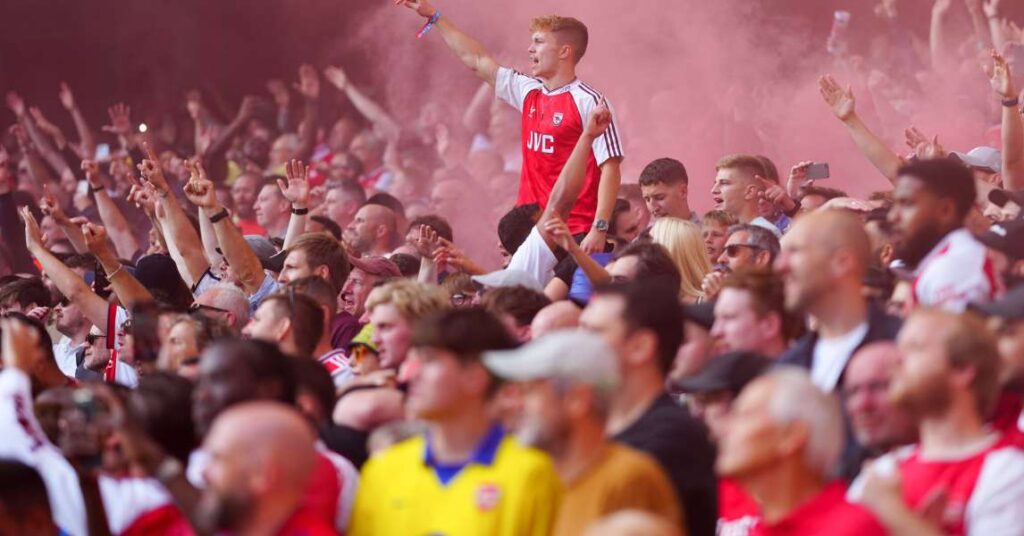Some fans stay devoted to their team no matter the circumstances, but others change their preferences to be on the winning side. The sports fandom culture developed across many decades, which created “glory hunters” and “loyal fans.” What underlying reasons motivate supporters to choose one fandom style over the other? The sports betting mentality functions in what way according to these fan types? Top betting platforms like Xbet open innovative ways to interact with sports through their unique platform, which attracts fans of all types. This article examines fandom psychology together with its effects on sports fans and bettors. So keep reading to learn more.
The Difference Between Glory Hunters and Loyal Fans
Fans of sports teams fall into two categories, which display separate reasons for their backing. The two fan types have distinct characteristics that can be examined through this explanation:
- Loyal fans support their team regardless of success, often influenced by family, location, or deep emotional connection.
- Glory hunters tend to follow the most successful teams, switching allegiances based on performance and star players.
- The rise of social media together with global broadcasting made casual supporter numbers surge as people choose teams according to popularity trends.
- Loyal fans develop personalized attachments to their teams, although glory hunters achieve more victories and rejoicing moments from their team’s success.
However, both groups contribute to the financial and global success of major sports teams.
Are Bettors More Like Glory Hunters or Loyal Fans?
The betting world of sports shows similar fan dynamics to those observed in traditional fandom. Users in the betting community choose between two betting orientations that contrast faithfully following teams with betting for victory in games. Here’s how:
- Most bettors act more like glory hunters, focusing on strong teams with consistent performances.
- Some bettors, however, stay loyal to their favorite teams even when the odds suggest otherwise. Successful betting requires objectivity, so emotional attachment can sometimes lead to biased decisions.
- Bookmakers modify their betting odds according to what public bettors bet on, making it possible to find advantageous betting possibilities while wagering against popular teams.
Real Madrid along with Manchester City and Bayern Munich receive overwhelming betting interest because of their established success record. Uninformed betting on teams disregarding their form and injury status along with external elements results in unfavorable wagering choices. People who base their betting selection on thorough examination instead of emotional attachment tend to discover profitable betting opportunities from underdog teams.
The Influence of Glory Hunters on Betting Markets
The behavior of Glory Hunters causes direct effects that reach betting markets, thus impacting them. Betting patterns change along three distinct lines when popular teams enter the betting picture.
- The betting interest in teams like Real Madrid, Manchester City, and the Golden State Warriors brings an excess of bets that significantly alters betting odds.
- Underdog betting can be profitable when the public overvalues top teams.
- Emotional betting vs. analytical betting: separating fandom from smart wagers.

Another key factor is how public sentiment affects odds movements. Sportsbooks modify betting lines by considering the massive number of wagers made against their predictions in popular teams. Such conditions present opportunities to make profitable bets against the public betting patterns, especially when a winning team gets exaggerated value after strong showings or media publicity.
How Do Media and Social Trends Shape Fandom?
Media and social trends operating in our digital age have a major impact on whom we support. Modern betting patterns are influenced by society-level trends. The media influences modern fandom through these three mechanisms:
- Social media discussions, along with highlight reels and viral moments, decide which team,s together with player,s receive the most fan following.
- Football betting applications, as well as fantasy leagues, promote additional relationships with sports teams above basic fan support.
- Superstars like Cristiano Ronaldo, LeBron James, and Lionel Messi create “player-first” fandom rather than club loyalty.
Sports culture in the present day derives most of its energy from digital content. Social media algorithms select the most interest-grabbing highlights resulting in casual fans getting attracted to dominant teams and players despite their competitive levels. Modern fan support patterns show that supporters now choose to follow individual athletes instead of backing entire clubs. Popular athletes dictate betting trend behavior because their notoriety before matches drives gamblers to place wagers no matter the actual game results.
Being a Devoted Fan Means…
Supporting your team as a loyal fan or following the winners as a glory hunter is neither good nor bad; it simply reflects your personal connection to the sport and what matters most to you. Ultimately, each fan chooses their side based on individual preferences and emotions. This is a natural part of what makes sports culture so unique and multifaceted.

When it comes to betting, it’s important to understand that successful predictions and accurate wagers require keeping a cool head. Emotional attachment and fandom can cloud judgment and influence decision-making. To make more accurate bets, one must rely on analytics and consider team and player statistics, current form, and external factors that can impact match outcomes. This helps minimize risks and identify valuable opportunities, especially when betting markets are flooded with wagers on popular teams.
